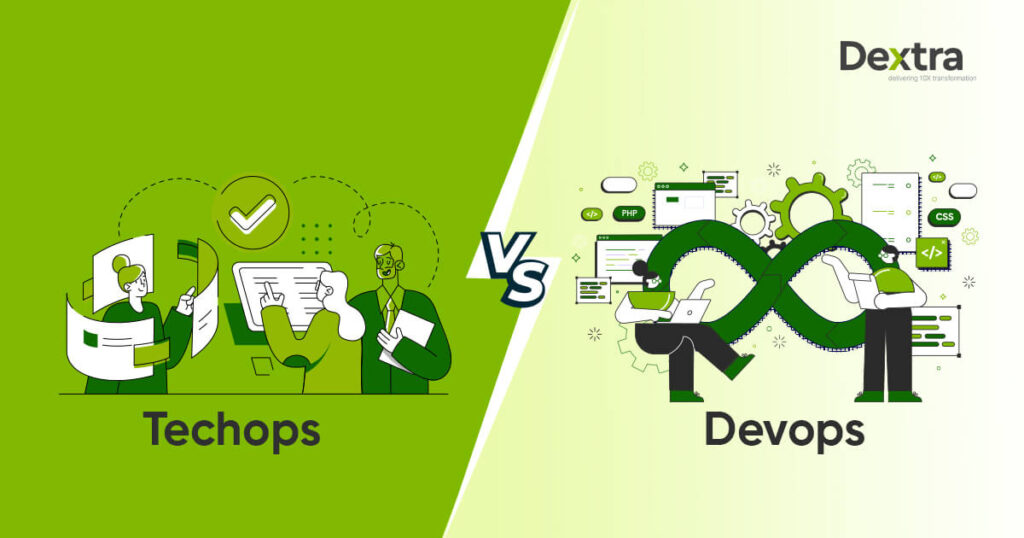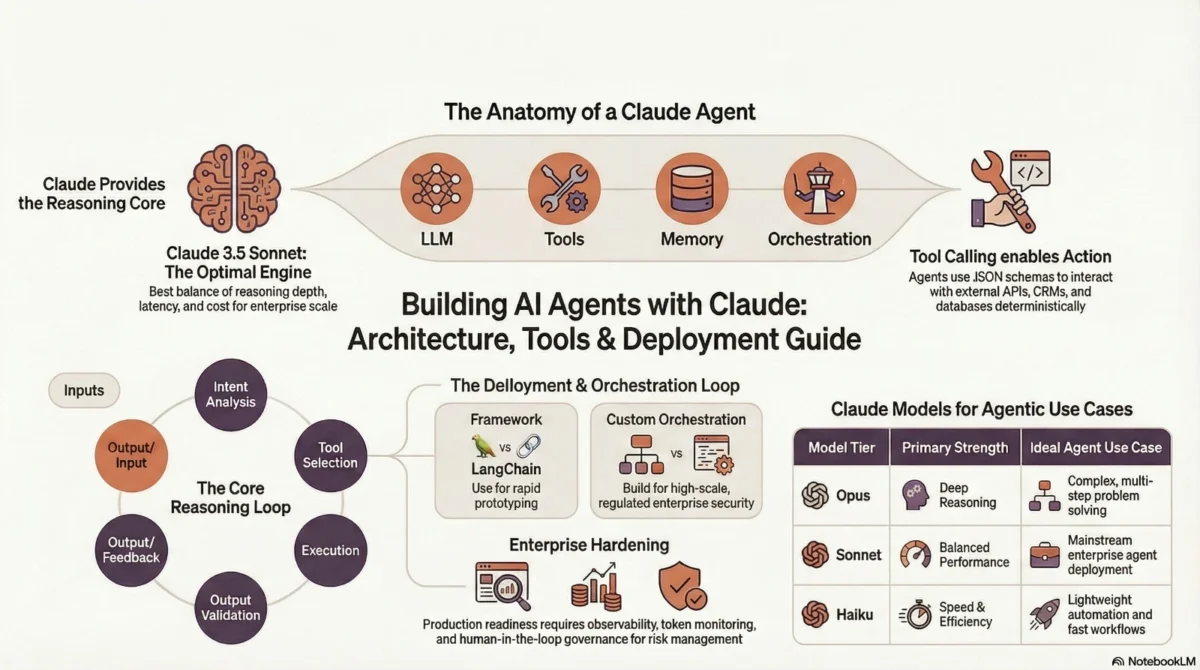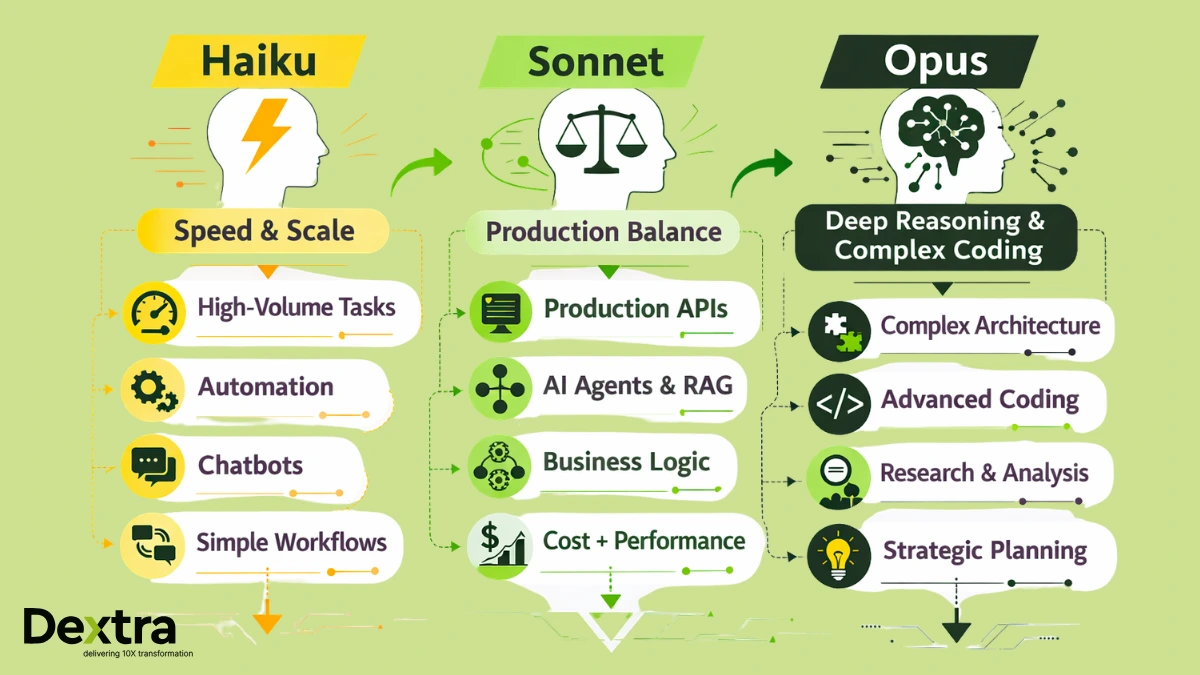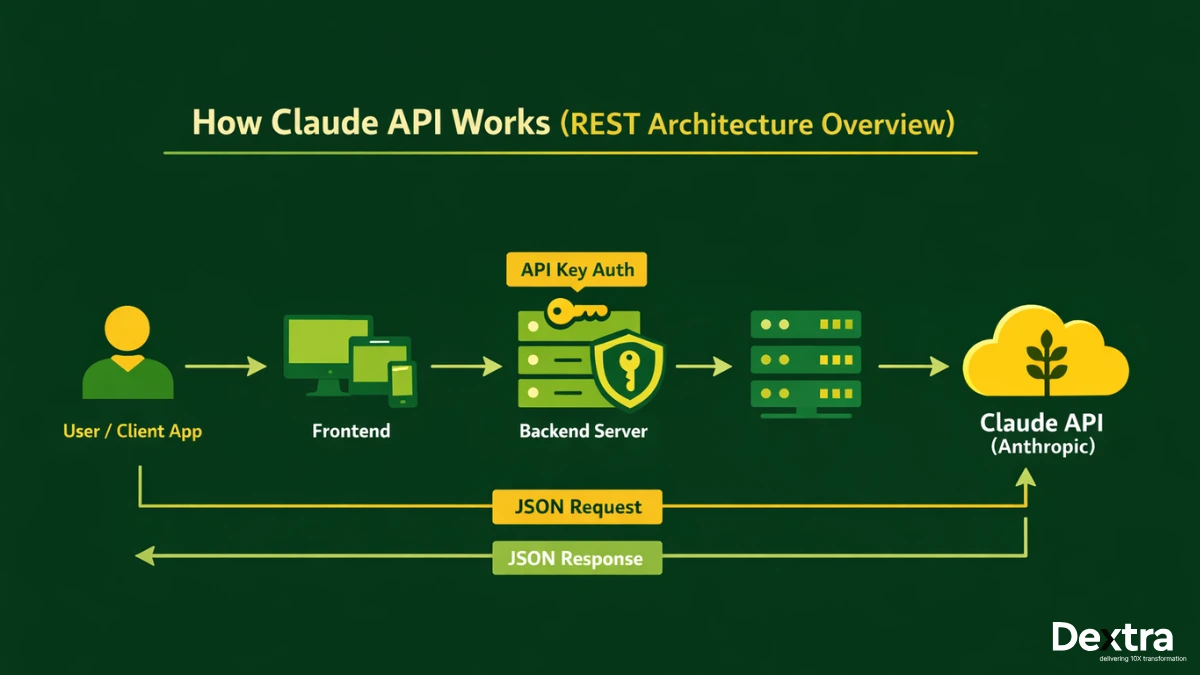The success of any digital development business heavily relies on the reliable integration of development and technical operations. In a period of rapidly changing digital methodologies, the development and operational teams are adopting the ideal integration to speed up the development process to meet market demands, considering the continuously changing customer behavioral feedback.
System teams are scaling up the work process, adopting the best methodologies in TechOps vs. DevOps. Both of these operations are considerable requirements to achieve the high-end targets of any tech company or startup. In this guide, let’s compare the job responsibilities, tools, and similarities between TechOps and DevOps. Moreover, we will share how combining these technologies boosts the company’s performance.
What is Technical Operations (TechOps)?
TechOps stands for Technology Operations, which means looking at and scaling up your business or startup through the lens of technology. It refers to the traditional infrastructure of Information and Technology Management, and this process emphasizes maintaining and optimizing the quality infrastructure and IT integrations of any digital business.
TechOps efficiently secures and tests the data, facilitates the desired production, and ensures the quality of speedy software delivery. It provides a quality, secure system and smooth running of technological affairs. Furthermore, TechOps builds data security strategies and runs data testing to prevent data from cyber attacks.
What are the Responsibilities of a TechOps Engineer?
The role of the Tech Operation Engineer is becoming more critical in achieving productive results for any software development organization. These industrial experts and engineers are reforming the industrial prior infrastructure for smooth and efficient performance. These are some important responsibilities of TechOps Engineers:
-
Managing and Monitoring Infrastructure
Any TechOps Engineer’s primary responsibility is to efficiently manage company resources and maintain the basic infrastructure, which includes databases, servers, networking equipment, and cloud-based services.
The goal is to monitor and deploy software by setting up and configuring it. They have to ensure the infrastructure is handled perfectly, maintain the load, and make changes if optimization is required. -
Managing Troubleshooting
The TechOps engineering team is the lead if any issue occurs in the development process’s operation line. There are multiple ways to handle troubleshooting: quick response, analysis of root issues, and resolution with important recovery. The engineering team resolves software bugs and reconnects the process.
-
Configuration
The basic responsibility of any TechOps engineer is to maintain the workflow and consistently optimize the system configuration. First of all, they manage the configuration files and their script. Secondly, ensure the association of internal and external standardized system regulation. And lastly, implementing the documental changes in the configuration process.
-
Effective Collaboration and Communication
The TechOps engineering team ensures a collaborative environment among all the departments for a smooth workflow. The engineering team helps establish reliable collaboration and maintain efficient communication throughout the project. The TechOps team shares valuable resources like messaging tools (for better connectivity), project documents, and more.
-
Securing Data with Backup Management
The TechOps team builds reliable resources for maintaining data recovery if anything uncertain happens or a system fails. They sit together to form better backup strategies, compiling the regular backup procedure to ensure data integration. They also try to mock up the data security process practice testing, which helps minimize the risk of any big disaster. Moreover, the technical teams regularly test the recovery process.
-
Continuous Monitoring and Improvement
The Technical team makes strategies for continuous system improvement by monitoring all the internal and external aspects of the system operations. These teams improve the workflow process with important integrations and optimization and refine the skills for more productive results.
-
Third-Party Management
The TechOps Engineers regularly interact with resource provider vendors, including hardware, software, and services. The primary objective of the Technical team is to evaluate the vendor and assess the important integration and requirements. After evaluation, the team finalizes the actual vendor among all considered for negotiation for the contract and finally allows for third-party integration in an internal system.
-
Automation Monitoring
If you intend to achieve accurate and rapid results from your development team, you must have the automated resources to speed up the workflow with minimal human effort. Technical teams help organizations adopt reliable business automation for speedy deployment. They write scripts for an automated process and integrate them with the internal system. If the desired automated tool is missing, the technical team develops custom tools for smooth business operations.
What is DevOps?
DevOps stands for Development and Operations. It is the collaboration of two business systems that ensures a productive environment process in the software development industry. In the development section, teams are developing strategies, tools, and codes, and enhancing project efficiency with the market’s innovative integrations. On the other hand, the operational process includes checking the system security and gathering customers’ feedback. The operational team forwards all the information and feedback to the development team to remove the bugs.
The DevOps engineering team focuses on providing the most efficient software to clients and automates the process of continuous monitoring, system integrations, and testing.
Similarities Between DevOps & TechOps
-
Automaton
TechOps and DevOps are both methodologies that bring innovations and support the automated system because the more automated the system is, the less need for human labor. Moreover, the system integrates with innovative tools like setting up servers, optimizing and analyzing tools, regular software updates, and configuration. Therefore, these methodologies also help secure and recover the data in case of any system disaster and ensure speedy software delivery.
-
Collaboration
These systems support the collaborative environment between the developer and stakeholders. A more collaborative system is important for smooth operational and development operations with innovative integrations to produce error-free projects. The technical team integrates advanced tools to help the development and operational teams achieve better results for software deployment in a defined period.
-
Optimization
The Technical and DevOps engineering teams support continuous improvement and optimization of the basic IT infrastructure for a smoother software development process. The TechOps engineering teams monitor and upgrade the infrastructure while the DevOps teams implement innovative tools and market feedback to remove bugs in further development.
-
Focus on Problem Solving
The key focus of the TechOps and DevOps engineering team is to enhance the problem-solving environment with all the collaborative teams and support to structure the efficient communication among all the departments for better project understanding. TechOps upgrades the IT infrastructure, and DevOps optimizes the integration tools, and these methodologies bring solutions.
Valuable Differences between DevOps and TechOps
-
Focus
The TechOps engineering team’s main focus is on monitoring and maintaining the basic IT infrastructure, and the DevOps teams are upgrading and bringing innovative tools, and focusing on market feedback. The focus of both engineering teams is different to ensure the speed, reliability, and main optimized system.
-
Goals
The main goal of the TechOps operational team is to ensure the IT structure and maintain continuous monitoring of all the operations. The DevOps teams build business strategies for optimizing and facilitating a collaborative environment among the development and operational teams.
-
Team Building
The TechOps monitoring teams manage the infrastructural, system optimization, and networking teams. In DevOps, the development teams and operations teams collaborate to bring productive project results.
-
Communication and Collaboration
The TechOps engineering teams communicate and collaborate with high-end vendors and third-party integrations to bring new software and tools. The DevOps communicates with the development and operational teams to facilitate better project understanding.
-
Tools Integration
The automation tools used in TechOps mostly involve monitoring and server management. CI/CD tools are the main tools used in automation for DevOps projects.
-
Valuable Approach
The technical team is suitable for system monitoring and stability with minimal operational changes. Agile is an important practice in DevOps, and some tiny changes and updates are practiced.
-
Bring Changes
The TechOps teams emphasize system upgrades, better response time, and capacity improvements. DevOps delivers continuous software delivery project time and recovers the project in a specific time.
Why Do Companies Need TechOps Engineers?
-
Infrastructure Management and Updates
The TechOps team is focusing on monitoring the IT infrastructure and making strategies for more reliable optimization. The engineers ensure the servers, data backups, testing, and system integrations. The technical operational teams maintain the current system and utilize all available resources to form reliable and scalable upgrades.
-
System Stability and Uptime
The TechOps engineering team is always up for providing quality system operations and maintaining uptime. It enhances the system’s performance, identifies errors, and implements efficient strategies for more proactive results.
-
Data Security
The primary objective of any development business is to secure data and build reliable resources to prevent data leaks. The TechOps engineers craft compelling strategies for maintaining data security and often run data testing if something uncertain happens.
-
Efficient Automationns
It is the prime need of industries to bring automation into their operational activities to minimize human labor and efforts. The TechOps engineers are implementing automation to all the relevant system operations for achieving better results and the smooth running of business activities.
-
Monitoring, Troubleshooting, and Response Time
The TechOps engineers are monitoring the company system and the errors in the operations. These engineers are responsible for troubleshooting and resolving the timing for smooth internal operations.
The Salaries of TechOps and DevOps Engineers
The salaries of both operations engineers vary because the working domain is different and depends on the skills, level of experience, and industry or company size. The entry-level TechOps engineers earn from $60,000 to $80,000 with a minimum of 02 years of relevant market experience. The mid-level TechOps engineers earn $80,000-$110,000 per year with 3-5 years of relevant experience, whereas the senior-level TechOps engineers earn $110,000 to $150,000 per annum with 5+ years of experience.
The beginner-level DevOps engineers are getting $70,000 to $90,000 per year, and mid-level DevOps engineers are getting $90,000 to $130,000 per year, depending on their experience of 3 to 5 years. Moreover, senior-level DevOps engineers are paid a minimum of $130,000 to $180,000, and the experience must be more than five years in the relevant job role.
The Bottom Line
In this article, we covered almost all the essential details of the TechOps and DevOps engineers, their respective responsibilities, and valuable similarities in their job roles. We have written the future scope of TechOps engineers, which is why companies require a team of competent engineers. You can read the detailed topic of operational collaboration between the technical and development teams for smooth operations and delivering high-end products. The collaboration helps build reliable communication tools among all the teams to better understand the project outlines. These integrations help build efficient business strategies for system monitoring and upgrading the required IT infrastructure with the help of the technical team and DevOps engineers to innovate the development tools, forward the market feedback for better project delivery, and remove bugs.
Frequently Asked Questions
Q. What is the TechOps team’s role?
The TechOps team monitors the system upgrade and builds data security and testing strategies. This team deals with data security, all relevant resources, and internal and external cyber threat prevention.
Q. What is Ops in DevOps?
DevOps combines two words: Dev stands for development, and Ops stands for Operations. In the system operations, the software is tested. The market feedback is forwarded to the development team to remove bugs and errors in the next projects, and upgrades are needed.
Q. Is DevOps reliable only for development and operations?
DevOps helps manage and build people to work in a collaborative environment to deliver quality software. DevOps optimizes the development (dev) workflow and operations (Ops) to speed up the required improvements.
Q. Which language is used in DevOps?
Python is one of the primary languages used in development and operation in DevOps. It is used for scripting by the DevOps engineers.








